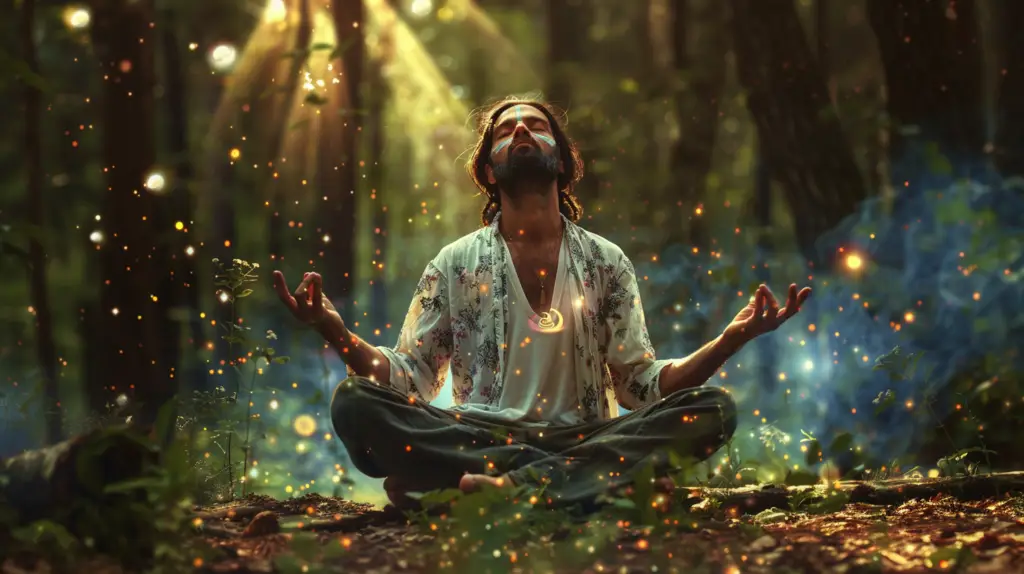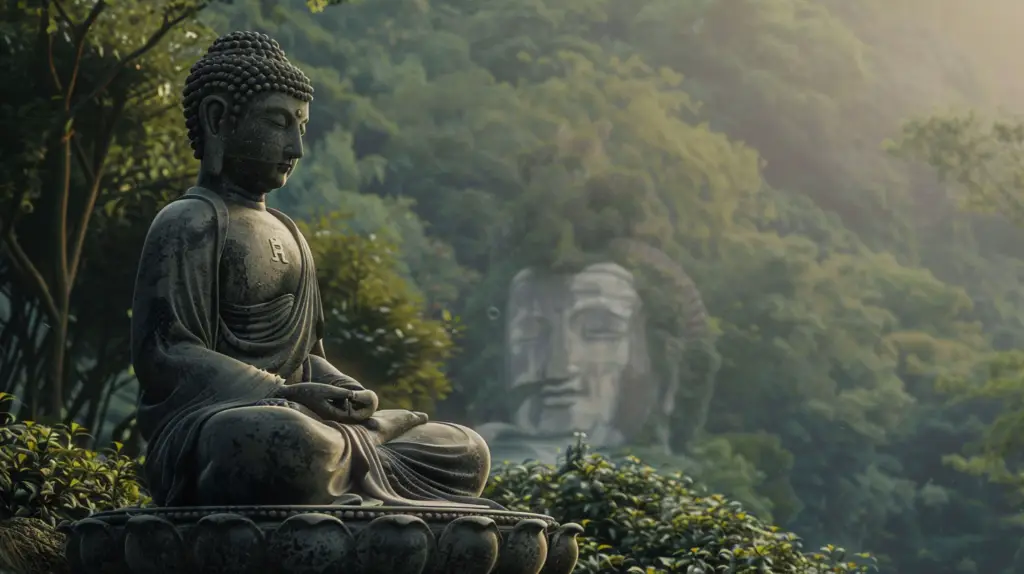Traditional vs. Modern Spirituality: Clash or Coexistence?
There are many differences between traditional vs. modern spirituality. Though both seek enlightenment, the understanding of the very term ‘spiritual’ differs a lot. Which is also a root for conflict. But maybe both sides can be reconciled?
Where It All Began: The Origins of Spirituality
The term ‘spiritual’ means ‘concerning the spirit’. It’s derived from Old French spirituel. But most probably, beginnings of spirituality are much older than English or French languages.
First forms of spirituality existed already in Antiquity. Have you ever read Greek, Roman or Egyptian myths? Many of them served as allegories and moral lessons. The same can be applied to ‘younger’ mythologies, like Norse or Slavic.
They weren’t meant to be understood literally. They were told (and later on, written down) to pass the wisdom. Thus, they guided our ancestors towards better connection with gods and the Universe.
Later on, as philosophy developed in Ancient Greece, spirituality evolved. Our ancestors weren’t only growing spiritually and learning to please the gods—they grew in order to find themselves.
Beginning of spirituality, or rather words translatable as ‘spirituality’, date to around 5th century. Then, spiritual meant animated by God, driven by Holy Spirit.
With time, that understanding evolved as well. It referred to inner life, questioning human motives, intentions, feelings and place in the world. However, it was still mostly associated with religion.
In the 20th century, spirituality and theistic religions, like Christianity or Islam, became disconnected. As many philosophies and religions influenced each other, so did the term ‘spirituality’ changed.
Traditional Spirituality: Enlightenment Through Divinity
Traditional spirituality is a transformation, aimed to return person to the image of God. This process is guided by specific models, for example:
- Christ in Christianity;
- Muhammad in Islam;
- Buddha in Buddhism.
Quick note here: Buddha taught a path of growth, that lead to awakening and liberation from dukkha. It’s not the same as returning to God in Christianity/Islam, of course. But Buddhism teachings also are deeply rooted in tradition and ‘returning to our roots.’
Buddhism is also often defined as both religion and philosophy.
Traditional spirituality puts emphasis on experiencing purification and transformation through a structured path and is associated with religion. A spiritual person is someone, who is enlightened in practices related to faith, and deeply understands dogmas.
This doesn’t mean, of course, that in traditional spirituality you can’t experience ascension on your own. For example: in Christianity, it’s crucial to tend to your own, private relation with God.
Many saints lived as hermits, like Saint Paul of Thebes or Saint Mary of Egypt.
However, the traditional teaching is inextricably linked to enlightenment. You cannot reach it without higher authority, that bestowed upon us its wisdom.
Modern Spirituality: Personal Experience and Inner Growth
Modern spirituality is sometimes described as a blend of philosophy, psychology, and Eastern religions/mythologies. However, it’s often rooted in Western beliefs as well, treating them as lessons from ancestors.
This kind of spirituality often functions outside of religion. But it’s not necessarily opposed to it. Rather, modern spiritually emphasizes the importance of personal experience.
It encourages seeking for answers not only via authorities, but looking inside. The search for deeper meaning depends on individual. Though there are some paths, that are connected, we all experience our own, unique journey.
Many mentors in modern spirituality also underline the significance and beauty of personal growth. Without it, there is no possibility to reach enlightenment.
You have to learn, in order to truly understand yourself and life around you.
At the same time, it’s crucial to remember, that you are not the only one in this world. A lot of gurus warn about ‘ego-trap’. It occurs when you identify too strongly with ego—how you perceive other and want to be perceived—rather than staying open to growth and change.
Modern spirituality (usually) doesn’t offer definitive answers. But the longer you learn, the more common trends you notice.
Key Differences: Tradition vs. Flexibility, Ritual vs. Mindfulness

The exact differences between traditional vs. modern spirituality depend on the perspective. Christian person have different views than Muslim or Buddhist. Simplifying, however, we can differentiate two key differences:
- Whether to follow dogma, established by higher authority, or rely on individual predispositions and preferences?
- Whether to focus on ritual and its deeper meaning, or be mindful about own feelings in the present time, not pre-established tradition?
Those differences are often uncompromising. You cannot follow traditional spirituality, if your individual views are heavily contradicting with dogmas. Of course: it’s normal to question religion, even as a believer.
There are, however, some truths that cannot be undermined, if you want to be a part of traditional religious community.
And the other way around: if you stick only to traditional dogmas, it will be hard to step into modern spirituality. Especially when confronting with other people on their spiritual path. Modern spirituality emphasizes personal experience and individual growth. You cannot combine it with firmly sticking to tradition.
That doesn’t mean, however, that the conflict of traditional vs. modern spirituality have to be endless torment for both sides.
Bridging the Gap: Can Traditional and Modern Spirituality Harmonize?
There are many ways in which both sides can learn from each other.
Modern spirituality is still rooted in traditional teachings, philosophies and often religions. You might believe in One God, yet don’t follow all dogmas of said branch, like Catholic or Orthodox. Still, you can read Bible and listen to official teachings.
Even if you don’t agree with them, there is always wisdom to be found.
On the other hand: traditional spirituality can learn from modern one on how to approach individual experiences. How do religion mix with psychology? Why is mindfulness such an important concept in modern spirituality? How can an individual deepen his devotion?
It’s important to be open to each other. Wisdom, that is not challenged, quickly becomes stagnant and rotten. And what better way to challenge it, if not by confronting people with other views?
Keep in mind, however, that some differences cannot be overlooked. Especially if one person is far traditional, and the other far modern.
The conflict of traditional vs. modern spirituality will probably stay with us for some time.
How to Find Which Suits You Best?
Please note, that the whole article is written from my subjective point. I don’t know which path is better: traditional, or modern spirituality. Personally, I’m more keen to the second option. But that doesn’t mean I reject traditional as a whole.
For me, to seek for answers and sacred values means questioning everything. Thus, I don’t fit into Christianity or Islam.
At the same time, I’m firm believer of higher being. I tend to call it a God, even though some modern gurus reject that term (not all of them, of course!).
The thing is: in the end you have to decide on your own, in accordance with your own values. This is, in my opinion, the only way to find truth.

